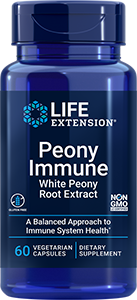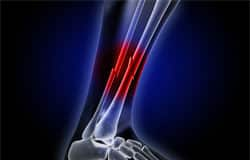- Science & Research
- Science News
- Newsletter
- 2014
- July 29

Newsletter
Newsletter
Magnesium Supplementation Improves Physical Performance In Older Women
Magnesium supplementation improves physical performance in older women |
|||
Tuesday, July 29, 2014. An article published ahead of print on July 9, 2014 in the American Journal of Clinical Nutrition reported findings from a trial involving healthy older women which associated improvements in physical performance with magnesium supplementation. "Magnesium deficiency has proved capable of impairing exercise capacity and reducing physical performance," note authors Nicola Veronese of the University of Padova and her colleagues. "Magnesium depletion is also associated with an increased inflammatory state, muscle cell alterations attributable to increased oxidative stress, and impaired intracellular calcium homeostasis. All these factors negatively affect muscle mass and function and could exacerbate the sarcopenia typical of old age." The study included 139 women aged 65 and older who attended a twice per week fitness program. Sixty-two participants were assigned to 300 milligrams (mg) magnesium per day (from 900 mg magnesium oxide) and 77 were given a placebo for twelve weeks. Gait speed, chair stands and standing balance evaluations, as well as strength assessments, were conducted at the beginning and end of the treatment period. At the end of the trial, women who received magnesium experienced significantly higher serum and urinary magnesium levels, and greater improvement in walking speed and chair stand times in comparison with the control subjects. The study is the first of its kind, to the authors' knowledge, to analyze the effect of magnesium supplementation on physical performance and strength in a population restricted to older individuals. "These findings suggest a role for magnesium supplementation in preventing or delaying the age-related decline in physical performance, particularly in magnesium-deficient individuals," they conclude. "Further research is needed to understand the influence of magnesium supplementation on physical performance in elderly people with different magnesium concentrations." |
|||
| What's Hot | ||||
| Supplementation with magnesium lowers CRP in prediabetics | ||||
An article published online on May 7, 2014 in the Archives of Medical Research reports the results of a double-blinded trial of subjects with prediabetes and low magnesium levels which found a benefit for magnesium supplementation in reducing C-reactive protein (CRP), a marker of inflammation. The trial included 62 men and women between the ages of 18 to 65 years with newly diagnosed prediabetes who had magnesium levels below 0.74 micromoles per liter (mmol/L). Participants received an oral magnesium chloride solution containing 382 milligrams magnesium or a placebo daily for three months, and both groups received advice concerning physical activity and the components of a healthy diet. Plasma glucose, serum magnesium and high-sensitivity C-reactive protein (hsCRP) were measured before and after the treatment period. By the end of the study, serum magnesium levels were higher, and fasting and two hour post-load glucose levels were lower among those who received magnesium in comparison with the placebo. While both groups experienced a decline in CRP, the decrease was significantly greater among those who received magnesium. Authors Luis E. Simental-Mendía and colleagues note that magnesium deficiency has been proposed as an early factor in the activation of the inflammatory response. They recommend further clinical trials to establish whether magnesium deficiency plays a causative role in inflammation and to determine its mechanisms. "Our results show that oral magnesium supplementation significantly decreases hsCRP levels in apparently healthy subjects with prediabetes and hypomagnesemia," the authors write. "Taking into account that elevated hsCRP is related to glucose metabolic disorders, our finding may have important implications in the policies focused in its prevention." |
||||
| Latest Products | |||||
 |
The Supplement Pyramid, by Michael A. Smith MD Item #33864
|
||||
| In The Supplement Pyramid, with a foreword written by health advocate, author and talk show host Suzanne Somers, Dr. Michael A. Smith covers the many reasons why even the healthiest diets fall short in terms of supplying the optimal amount of nutrients we need not just to survive, but also to thrive. However, with such a staggering amount of choices on the market, it's easy to become overwhelmed. That's where The Supplement Pyramid enters the picture. Like traditional food pyramids that help us design and follow a healthy diet, The Supplement Pyramid is an educational tool that can be personalized to meet anyone's specific nutritional needs. With its three-tiered plan—foundational, personalization, and optimization levels—The Supplement Pyramid helps readers design a nutritional regimen that meets their unique needs. Step-by-step instructions and detailed medical quizzes, along with useful information about blood testing, help readers determine the most important nutritional supplements for their bodies—and this becomes an ideal personalized menu from which to choose. | |||||
 |
Peony Immune, 60 vegetarian capsules Item #01811
|
||||
Healthy aging requires a dynamic immune system. A youthful body is dependent on balanced immune-cell activity to maintain effective, responsive, and modulated immunity. Extracts from the white peony root have been used in China for immune balance for more than 1,200 years. Modern science now recognizes the immune importance of a bioactive peony extract component called paeoniflorin. Peony Immune White Peony Root Extract is a standardized extract of active white peony compounds that have been shown to help maintain the balanced responsiveness, sensitivity, and strength of a properly-modulated immune response. Through a host of subtle mechanisms, Peony Immune White Peony Root Extract promotes immune homeostasis—optimal immune health—by limiting production of inflammatory molecules and naturally balancing inflammation-suppressing cells and pro-inflammatory cells. |
|||||
| Related Articles | |||
| Don't Fall Victim to Frailty | Exercise Enhancement | ||
 |
 |
||
The latest news on aging, nutrition, and vitamins
Lab
Testing
How Life Extension lab testing works


